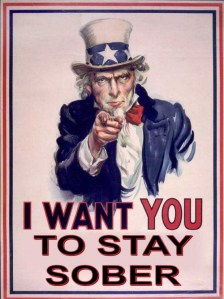The brief for our project was to create a creative media artefact which promotes the creative industries in Louth in general and the Dundalk IT and Creative Spark in particular. One of the sub themes of the brief was the Spark Plugs Social Club. Myself and my group had a look on the Creative Spark website to see what the social club was about. www.creativespark.ie
After looking on the website we didn't find out much information about it apart from that if you rent an office in the Creative Spark building you get membership to the social club. So as a group we decided that we wanted to organize something around the social club.
Our first idea was to set up an online forum for the social club so people would have somewhere they could talk to people outside of the meetings and then maybe the forum could be use to further discuss topics brought up at the meetings. So our group member Aoife created the online forum so we have it up and running for people to sign up to.
We then decided that we wanted to hold the first meeting of the social club so the next step was to organize a meeting with the head of the Creative Spark Sarah Daly. Our group member Sarah emailed Sarah Daly and arranged a time we could meet with her. On the day we went down to the Creative Spark building and we told Sarah Daly our idea to hold the first social club meeting so she was very pleased with this idea. We wanted to get feed back from her of what she wanted from the social club. She wanted to get the tenants of the building involved and the Science Service Centre and then just general people working in the creative industries and students. She was interested in the idea of having a guest speaker on the night too so she was going to speak to the tenants to see if they were interested in speaking and we said that we would try and arrange a speaker too. She also agreed to give a brief introduction at the meeting about the Creative Spark.
Other things she wanted from the meeting was feedback on certain things. She wanted to know how much people would be willing to pay to join the club and also what people would like to see from the social club. So we decided that we would do a questionnaire that people would fill out after the meeting.
Another group in the class were arranging an open night and exhibition in the Creative Spark so Sarah said she would like to hold the meeting on the same night so it could all tie in together. We then spoke to the other group about this and they agreed that it was a good idea.
In the following week or two then we kept in touch with Sarah through email and kept her updated on how the planning for the meeting was going and she informed us that a lady called Tracey Dunne would speak at the meeting. She owns a company called Element Design and was the first tenant in the building. At the same time we were trying to arrange a speaker too. We had a man from Boylesports that agreed to speak but then he pulled out. We then arranged for a girl called Julie Reilly to speak. She is a past student of our course and currently working as an online editor in Boylesports so we asked her to talk about her experiences. We also spent time over the two weeks emailing some people to try and get the word out about the night.
We also decided then what we were going to do as the media artefact. We wanted to create something positive for the Creative Spark and create something that they could use. So we came up with the idea of making a video that they could put on their website. We decided to take photos on the night of the meeting and the exhibition and then do a vox pop on the night of people talking about how they think the Creative Spark will benefit them and then we were going to put tis altogether in a video.
We were all set then to go for the meeting so we just had to hope it went well on the night. The open night was on the 22nd Oct from 5-8 so we had our social club meeting from 6.15-7. There wasn't a big turn out on the night and we were worried about this but it ended up being a good thing for us. We held the meeting in a small room of a bout 15 people. The guest speakers were really interesting and informative about working in the industry and everyone really enjoyed the talks. The small number of people meant that everyone could get out any questions they had and it kinda turned into a bit of a group discussion then and more people felt comfortable talking. We left questionnaires on the chairs and collected these after the meeting so we could give the feedback to Sarah. After the meeting we also got people to sign up to the online forum and we went around and did the vox pop.
I think that the first social club meeting was a great success and as a group we were very happy with how our project went. All that was left to do then was to put the video together and let Sarah know our findings from the meeting.
Some photos from the night:
The room set up
Guest speaker: Tracey
Guest speaker: Julie
People there on the night




























